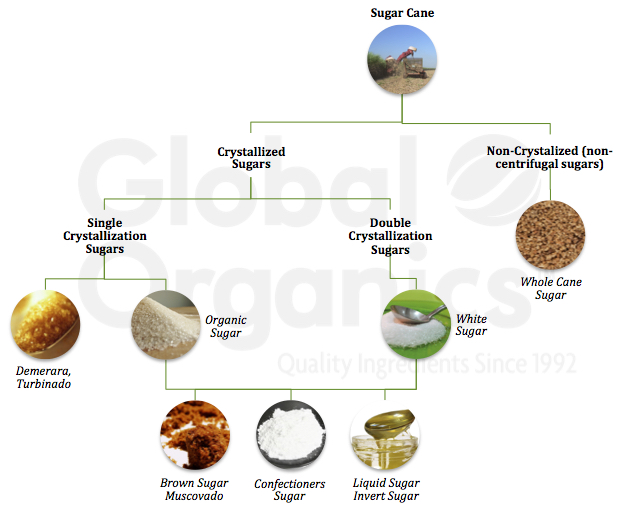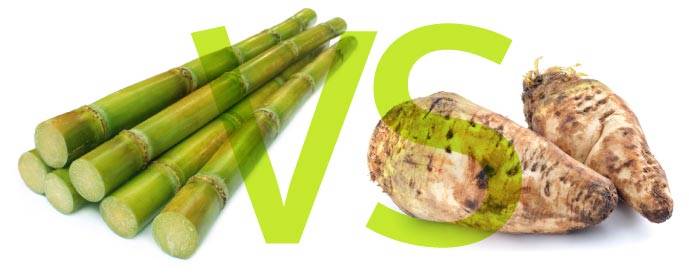Cane Sugar Processing Explained: What Happens Inside a Sugar Mill
A Detailed Introduction of the Health and Economic Ramifications of Walking Stick Sugar Handling on Local Communities
Walking cane sugar processing plays an essential duty fit the economic landscape of regional neighborhoods, providing work possibilities and stimulating ancillary sectors. However, the health and wellness implications connected with high sugar consumption can not be ignored, as they add to climbing prices of weight problems and diabetes mellitus. This nuanced vibrant welcomes an essential exam of just how areas can optimize financial gains while addressing journalism health and wellness obstacles they face. The expedition of lasting practices and academic efforts might simply hold the trick to fixing up these clashing rate of interests. What methods might neighborhoods implement to achieve this equilibrium?
Economic Benefits of Cane Sugar Handling
Cane sugar handling offers substantial financial benefits that expand past the prompt farming industry. The farming and processing of sugarcane produce numerous job possibilities, from farming to manufacturing and distribution. This work generation not just sustains regional economies yet likewise fosters area advancement by giving steady earnings sources for households.
Moreover, the sugar sector stimulates secondary businesses, including transport, tools supply, and packaging solutions (Cane Sugar Processing). As these sectors expand, they add to a more robust financial structure, enhancing general community strength. The export possibility of processed walking stick sugar even more magnifies economic benefits, placing regions as affordable players in global markets
Financial investment in modern processing facilities can result in raised performance and efficiency, thus lowering waste and optimizing source use. This change not just benefits the local economy however likewise sustains sustainability efforts by lessening environmental impacts.
Furthermore, the income produced from walking cane sugar handling can be reinvested in neighborhood infrastructure, education, and health care, promoting alternative area development. On the whole, the financial advantages of cane sugar processing are multifaceted, providing a foundation for withstanding success in farming regions.
Wellness Threats Connected With Sugar Consumption
Excessive sugar usage presents considerable health and wellness dangers that necessitate severe attention. High consumption of included sugars, particularly from processed foods and beverages, has actually been connected to many health and wellness issues. One of one of the most pressing worries is obesity, as sugary diet regimens add to an enhanced caloric intake without giving essential nutrients. This unwanted can cause metabolic problems, including type 2 diabetes mellitus, which has actually ended up being progressively widespread in both kids and adults - Cane Sugar Processing.
Furthermore, high sugar consumption is related to heart disease. Raised blood sugar level levels can cause insulin resistance, a precursor to various heart-related concerns. Additionally, sugar can have destructive impacts on oral health and wellness, resulting in tooth cavities and gum disease, as germs in the mouth grow on sugar, producing acids that deteriorate tooth enamel.
Additionally, arising research suggests a possible link between high sugar usage and psychological health disorders, such as depression and anxiety. As neighborhoods face these health threats, it becomes crucial to promote awareness and urge healthier dietary choices. Addressing sugar usage is essential not only for specific wellness however additionally for the overall wellness of regional communities, emphasizing the requirement for comprehensive public health and wellness approaches.
Ecological Influences of Sugar Manufacturing
Regularly forgotten in conversations concerning sugar's implications is the significant environmental impact of sugar production. The growing of sugarcane frequently demands considerable land usage, resulting in deforestation, loss of biodiversity, and interruption of regional environments. The conversion of forests and wetlands right into sugar vineyards can result in habitat devastation, threatening various species and changing environmental balance.
Moreover, sugar manufacturing is resource-intensive, consuming considerable quantities of water for irrigation. This can cause deficiency of local water sources, detrimentally impacting both agricultural methods and community accessibility to tidy water. Additionally, the use of chemical fertilizers and chemicals in sugarcane farming can add to dirt destruction and water contamination, as runoff from these chemicals gets in nearby rivers and lakes, impacting marine life and human health and wellness.
The environmental footprint encompasses the handling phase, where power usage and waste generation additional exacerbate eco-friendly issues. Air air pollution from shedding sugarcane fields, in addition to greenhouse gas discharges, add to environment modification. As such, the ecological effects of sugar manufacturing warrant major factor to consider, advising stakeholders to take on even more sustainable methods to mitigate these negative effects on neighborhood ecosystems and neighborhoods.
Job Production and Neighborhood Growth
The environmental difficulties positioned by sugar manufacturing are usually reversed by its possibility for economic advantages, especially in work creation and community advancement. The cane sugar market works as a substantial resource of employment in numerous country areas, offering work throughout different skill degrees, from agricultural labor to handling and distribution duties. This employment not only supports private families however additionally adds to the general financial vitality of local neighborhoods.
In addition, the establishment of sugar handling centers boosts secondary businesses, such as transport solutions, tools supply, and upkeep providers. As these services grow, they develop added work and reinforce try these out regional economic situations. The revenue generated from special info the sugar sector additionally results in increased tax obligation profits, which can be reinvested right into area solutions such as education and learning, framework, and healthcare growth.
Additionally, the sugar industry usually takes part in area advancement initiatives, such as sustaining local schools and wellness programs, consequently enhancing the top quality of life for citizens. By promoting solid neighborhood ties and advertising economic development, the cane sugar handling sector plays a vital duty in uplifting regional populaces, making it a necessary element of lasting development methods in sugar-producing regions.
Harmonizing Health And Wellness and Economic Development
In navigating the complexities of walking cane sugar processing, an essential difficulty hinges on balancing health factors to consider with financial growth. The sugar market considerably adds to local economic climates by creating tasks, promoting relevant industries, and boosting tax obligation incomes. Nonetheless, the health implications connected with excessive sugar usage can bring about chronic illness such as excessive weight, diabetes mellitus, and cardio problems, which can burden public health systems and reduce workforce efficiency.

Moreover, regulative structures can play a pivotal role in leading industry methods in the direction of even more lasting and health-conscious strategies. By promoting collaboration between federal government bodies, health and wellness organizations, and the sugar sector, areas can navigate his response the dichotomy of health and economic development, guaranteeing that the benefits of cane sugar handling are equitably shared while prioritizing public wellness.
Verdict
To conclude, the handling of walking stick sugar presents both significant financial benefits and notable wellness risks for local neighborhoods. While it cultivates work production and boosts regional growth, the affiliated health problems, specifically concerning obesity and diabetes, demand a cautious balancing act. By promoting accountable consumption and investing in neighborhood education and learning and lasting practices, it is feasible to make best use of financial advantages while decreasing adverse wellness impacts, thus making certain a much healthier future for neighborhood populaces.
Additionally, sugar can have harmful effects on dental health and wellness, resulting in dental caries and gum condition, as bacteria in the mouth prosper on sugar, creating acids that erode tooth enamel.
Resolving sugar consumption is vital not only for individual wellness yet also for the general wellness of regional areas, stressing the demand for detailed public wellness strategies.
Frequently forgotten in conversations about sugar's ramifications is the considerable environmental impact of sugar production. The wellness ramifications connected with too much sugar consumption can lead to chronic diseases such as excessive weight, diabetes mellitus, and cardio issues, which can burden public wellness systems and reduce labor force productivity.
